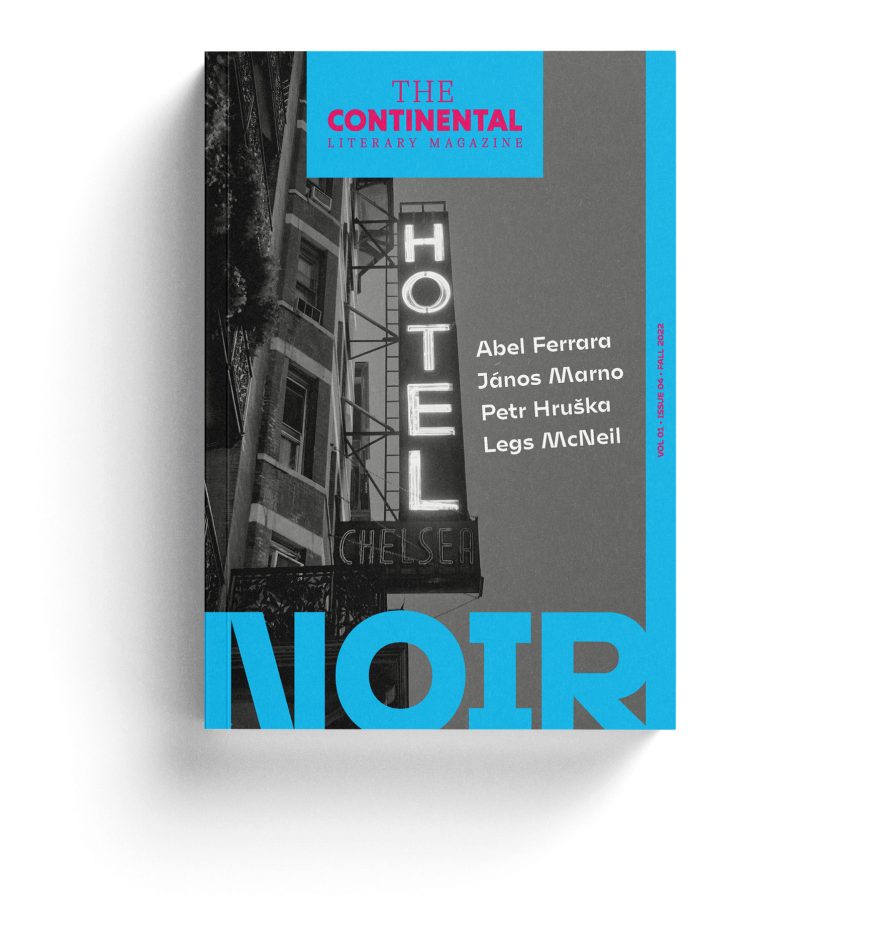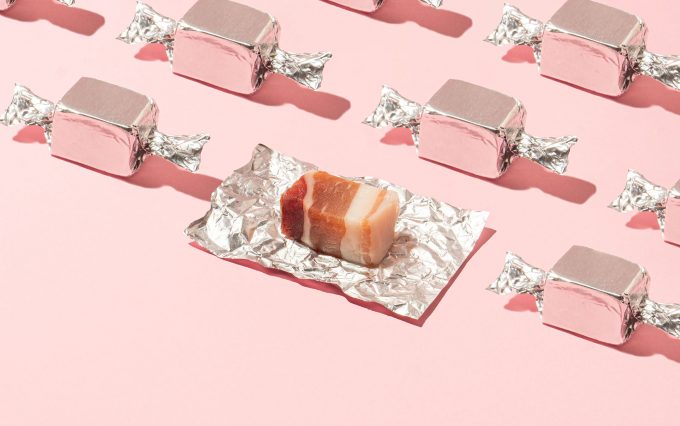
7th February 2023
Fiction
6 minutes read
Five Dead Dogs
translated by Melvyn Clarke

7th February 2023
6 minutes read
August 1988
Leoš Šmídmajer and Zbyněk Brukner shared a long-standing friendship,
a strong bond forged during their school years, in the days when Šternberk was seemingly a dilapidated, grey little town, so boring that it was remarkable even by the standards of the late normalization period. Everyone there knew each other, conjoined as they were by kinship, school friendships, the mutual aid network and most important of all, the hours spent together in watering holes of all kinds. Brukner’s father was a functionary at the local state agricultural cooperative, while Šmídmajer’s parents assembled alarm clocks at the Chronotechna factory. Their life rhythms were determined by the alternating morning and afternoon shifts, official trade union holidays in the Jeseník Mountains and weekends at their cottage in Paseky, which was so pitiful that the “shack” epithet that Leoš had given it was not the expression of some adolescent defiance by a rebellious teenager but a sober description of its actual state. Sometime in the spring of 1988 the “shack” had burned down so completely and utterly that only the metal front door frames were left standing; no one ever managed to determine the cause of the fire, so Leoš concluded that the property had committed suicide by spontaneous combustion out of self-pity over its own impoverishment.
If Šmídmajer and Brukner had been endowed with the gift of self-awareness, they would have agreed that they’d been shaped not only by their shared education and environment but also by their shared traumas and grievances, which were never in short supply in such places and times, as well as by their jointly experienced tedium and general pissed-offedness. In a town and district where everyone knows everyone else, it’s hard to successfully take on the role of teenage tearaway, rebelling against everything and everyone. An assistant at the supermarket was the aunt of one of them, while the assistant at the evening shop was the other’s mother’s cousin, and there were many times when the boys had to rapidly motorbike off for cider and smokes to Olomouc, where the “big” Hanačka store, a short way from the main station, not only had a broader range, but also a well-disposed staff, i.e. who did not tell tales.
Sometime at the beginning of the holiday season in 1988 the two sixteen-year-olds discovered by sheer chance that the chap who ran the kiosk at the Sternberg bus station, a ruddy-faced, raucous, forever-scowling, grease-stained character of indeterminate age, preferred making money to adhering to the principles of socialist legality and never asked for identification when the boys ordered a couple of beers. His Start-brand cigarettes did cost two crowns more, but again there was no longer any need for the annoying slog on a crammed motorbike to Olomouc. But then the boys discovered that the biggest attraction of the kiosk was the fat sausage known as a tramp’s cigar on a paper tray, generously covered with mustard, plus a thick slice of caraway bread, and all for just a tenner.
This guy running the kiosk, who everyone called ol’ Zeman, had three plasterboard standing tables,
probably discarded from the station pub, so Leoš and Zbyněk felt (at long last!) like real cool guys that summer: every day they left the swimming pool, which was the only place to go in Sternberg during the holidays, and wandered over to the bus station, where they each stood drinking beer from a paper cup, and each bought a half portion of a tramp’s cigar, the price and taste of which the enterprising Zeman increased by slightly over-smoking the standard sausage product at home. In his smoke-house squeezed up against the side wall of his allotment shed, he would burn stolen railway sleepers soaked in tar and diesel oil, making his products absolutely unmistakable and hence quite infamous. Zeman soon expanded his carcinogenic range of goods – albeit under the counter only – to include smoked pork belly, leg and neck. Every day the boys stood rather suavely at the tables behind the kiosk, cheap cigarettes in the corner of their greasy mouths, observing the hubbub all around. They soon realized that Zeman had plenty of regulars. Drunks took turns at the kiosk, dressed in overalls even in the hottest weather to give the impression they were just coming off their shift, knocking back the cheap rum in large quantities, panting and sweating, or polyester men with bulging briefcases, who had just arrived in a rickety coach from somewhere and were hastily downing a swift one before the old lady indoors made them stand to attention, as well as youngsters of all kinds, boys just like them, indulging in forbidden adult pursuits, and then, strangely enough, housewives of all ages, whose string bags netted some newspaper-wrapped strips of peculiarly scented smoked meat. The boys soon realized that old Zeman in his greasy red apron was successfully competing against all the local butchers and charcuteries. The regular clientele included the local police, who would drop by during their shift for a tramp’s cigar with mustard and a friendly chat with Zeman.
At first the boys thought they’d be in trouble, and that upon seeing them with a cup of beer and a cigarette,
the police would immediately start up with their patronizing: “How about showing your identity card then, laddie, huh?” – but not these guys – they were invisible to these guys. And then Leoš noticed. Old Zeman gave a package wrapped in old newspaper to one officer, who nodded affably, got into his car and drove off.
“Oh man, did you see that?” Leoš was staring uncomprehendingly after the departing yellow and white police vehicle.
“What?” Zbyněk took a bite out of the hot tramp’s cigar and the juice squirted onto the plasterboard tabletop.
“The cop didn’t pay him…”
“So?”
“He gave it him for free.”
It was all the same to Zbyněk. He finished the rest of his sausage and wiped up the mustard and dripping from the paper tray with his bread.
“They come here for freebie food,” mused the young Šmídmajer.
“Maybe they paid in advance,” Zbyněk commented without much apparent interest, his mouth full of bread and mustard.
“Man, are you a moron?” Leoš shook his head at such stupidity.
FULL VERSION AVAILABLE IN THE PRINT EDITION







